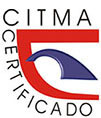Historia y memoria de un venezolano en Cienfuegos: Tomás Terry Adams (1830-1882)
Palabras clave:
historia de Cuba, siglo xix cubano, Tomás Terry, racionalidad instrumental moderna, patrimonio cultural material, historia de CienfuegosResumen
Introducción: El objeto de estudio de este trabajo consiste en explicar las estrategias y mecanismos aplicados por Tomás Terry Adams como estilo de pensamiento racional instrumental moderno en Cienfuegos entre 1830-1882, así como su legado a la localidad.
Métodos: El método lógico-histórico fue utilizado en la interpretación de las fuentes que develan el proceder del sujeto, a partir del contacto con la realidad y la asimilación del contexto, el analítico-sintético y el inductivo-deductivo en el procesamiento de la información para relacionar contenidos.
Resultados: Refiere la procedencia, formación familiar de un venezolano que conquista Cienfuegos entre 1830 y 1882, se inserta a la élite; al comercio y tráfico; al asociacionismo económico y el transporte marítimo de cabotaje, al negocio azucarero y realiza inversiones dentro y fuera de Cuba mediante las redes; la refacción y la capitalización, además lega un patrimonio cultural tangible a la localidad.
Conclusiones: Tomás Terry Adams utiliza estrategias y mecanismos sustentados desde una racionalidad instrumental moderna para formar, despegar, evolucionar y consolidar una fortuna en Cienfuegos entre 1830- 1882. La herencia cultural material legada por Terry es parte del patrimonio cultural tangible local.
Descargas
Citas
ALFREDO, G. E. (1929). Operaciones y contabilidad bancarias. Imprenta de Jesús López, San Bernardo.
BARCIA, Z. M. C. (2005). Capas Populares y Modernidad en Cuba.1878-1930. Editorial La Fuente Viva.
BARCIA, Z. M. C. (2022). Caracterizando la trata ilegal en Cuba: espacios, redes y actores. Ayer 128 (4), 71-102.
CARVAJAL, V. A. (2005). La racionalidad tecnológica más allá de la razón instrumental. Revista de Filosofía de la Universidad de Costa Rica XLIII (108), 75-88.
GARCÍA, S. S. & Moya, P. N. (2023). Comerciantes banqueros y redes de parentesco. Cienfuegos 1880-1920. Redes. Revista Hispana para el análisis de redes sociales 34 (1), 87-102. https://doi.org/10.5565/rev/redes.966
GARCÍA, A. A. (1990). La Burguesía Comercial en Cuba. 1898-1920. Editorial de Ciencias Sociales
GARCÍA, M. O. (2012). Esclavitud y colonización en Cienfuegos 1819-1879. Editorial Mecenas.
GARCÍA, M. O. (1976-1977). Estudio de la economía cienfueguera desde la fundación de la colonia Fernandina de Jagua hasta mediados del siglo XIX. Islas (55-56), 119-146.
MARTIN, B. L. (2010). El desarrollo urbano de Cienfuegos en el siglo XIX. Editorial Mecenas
MORENO, F. M. (1964). El ingenio. Complejo económico – social cubano del azúcar. Editorial de Ciencias Sociales
NÚÑEZ, J. J. (1999). La ciencia y la tecnología como procesos sociales. Lo que la educación científica no debería olvidar. Editorial Félix Varela
PACEY, A. (1990). La Cultura de la Tecnología. Fondo de Cultura Económica
RODRIGO, A. M. (2013). De la esclavitud al cosmopolitismo: Tomás Terry Adams y su familia. En, Afroamérica, espacios e identidades. (pp. 93-119). Ediciones Icaria.
RODRIGO, A. M. (2022). Beneficios y beneficiarios del comercio de esclavos en Cuba (1815-1867). Ayer 128 (4), 103-129.
STRAKA, M. T. (2023). Perspectivas. El venezolano más rico del mundo (I-II). https://prodavinci.com/el-venezolano-mas-rico-del-mundo-i/
SHARMAN, J. C & ZARAKOL, A. (2024). La esclavitud global en la creación de Estados y órdenes internacionales. American Political Science Review 118 (2), 802-814.
SOSA, A. O. I. (2019). Un enfoque ciencia y tecnología desde las acciones desplegadas por Tomás Terry Adams (1830-1882). Universidad y Sociedad 11(3), 22-30.
SOSA, A. O. I. (2023). La racionalidad instrumental moderna en las actividades desarrolladas por Tomás Terry Adams en Cienfuegos (1830-1882). Jagua 3(1), 30-38.
SOSA, A. O. I. (2025). (26 de Enero- 1 de Febrero 2025). Comercio, Esclavitud y Plantación: Los Cimientos de la Fortuna de Tomás Terry Adams en Cienfuegos (1830- 1882). Circle of Conferences Slave labor, strong asymmetric dependency and social mobility in the transition from slavery to freedom in Latin America and Cuba 1820-1900, Bonn Center for Dependency and Slavery Studies (BCDSS), University of Bonn, Alemania.
TAYLOR, E. R. (2001). Cuando reinaba su Majestad el Azúcar. Imagen Contemporánea.
TAYLOR, E. R. (1961). Comerciantes cubanos del siglo XIX. Editorial de Ciencias Sociales.
TERRY, K. & GARCÍA- ALVAREZ, DE LA V. B. (2016). Terrys in Spain and Latin America: Exile and rise of and Irish Merchant Family. Estudios Irlandeses (11), 68-91.
URÍA, R. (2006). Derecho Mercantil. Editorial Félix Varela.
ZEUSKE, M. & García, O. (2009). La Amistad de Cuba. Ramón Ferrer, contrabando de ESCLAVOS, captividad y modernidad atlántica. Caribbean Studies 37 (1), 104-106.
ZEUSKE, M. (2018). Out of the Americas: Slave traders and the Hidden Atlantic in the nineteenth century. Atlantic Studies. Global Currents 15 (1), 103-135.
ZEUSKE, M. (2023). The Second Slavery in the Americas. En, The Palgrave handbook of global slavery throughout history. (pp. 429-439). Publisher Palgrave Macmillan.
ZEUSKE, M. (2024). Afrolatinidad e historia de las esclavitudes. Editorial Universidad de Guadalajara.
Publicado
Cómo citar
Número
Sección
Licencia
Derechos de autor 2025 Olga Isabel Sosa Amorós

Esta obra está bajo una licencia internacional Creative Commons Atribución-NoComercial 4.0.
Usted es libre de:
Compartir — copiar y redistribuir el material en cualquier medio o formato
Adaptar — remezclar, transformar y construir a partir del material
La licenciante no puede revocar estas libertades en tanto usted siga los términos de la licencia
Bajo los siguientes términos:
Usted es libre de:
Atribución — Usted debe dar crédito de manera adecuada, brindar un enlace a la licencia, e indicar si se han realizado cambios. Puede hacerlo en cualquier forma razonable, pero no de forma tal que sugiera que usted o su uso tienen el apoyo de la licenciante.
NoComercial — Usted no puede hacer uso del material con propósitos comerciales.
No hay restricciones adicionales — No puede aplicar términos legales ni medidas tecnológicas que restrinjan legalmente a otras a hacer cualquier uso permitido por la licencia.












